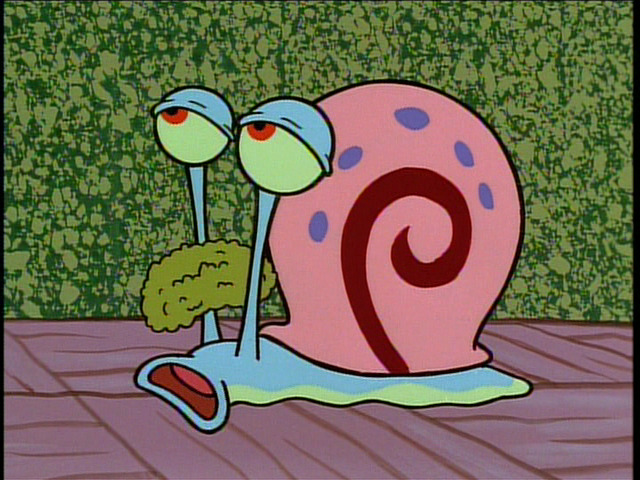I’ve been more and more conscious about microplastics. I was not aware that the laundry and dishwasher pods are just plastic which then goes into the water system.
What can be done to prevent microplastics?
I think that being informed can help dilute the worry. Here’s what I’ve learned:
Most microplastics found inside humans come from synthetic clothing followed by car tires. Theres a great Veritasium video on this. Plastic cookware is also a consideration.
Food & Cookware
Don’t buy dishwasher pods, they’re worse for the environment (plastic waste) and worse for your wallet than just a regular fluid container. Both fluid container and pod container are plastic so theres not much improvement to be had there.
My friend with a Chemical Engineering degree tells me that the plastics are stable chemically, and insufficient evidence exists to deem them harmful when left alone in cool temperatures. HOWEVER, unreacted precursor chemicals and thermosets are highly reactive, and new plastics come still coated with this. New car smell? Thats unreacted precursor, and it’s very harmful. Additionally, plastic cookware also gets hot, breaking it down slowly, and potentially making it harmful.
Avoid plastics and “non-stick” coatings in cookware.
Clothing
First thought is to avoid synthetic clothing, but theres a catch… Synthetic clothing is significantly better at blocking harmful UV light from the sun. For example, polyester & Nylon UPF is about 30-50+, whereas cotton is around 5. UPF = SPF generally. For this, I prefer wool (UPF ~40) or denim (UPF 1000+ off the chart). However, thats hot, so using some tight knit polyester shirts is a must in warm climates. Many shirts from retailers like REI have this stuff. So far, the ones I own have never shed noticeably, though that may change.
Why am I talking about sun protection? Remember, the goal is your health, not fearful avoidance of one harm that subjects you to another.
For all fabrics that aren’t expected to protect from the sun, natural fibers are preferred. Included is bedding, towels, bathrobe, pajamas, casual clothing, socks, etc.
Other thoughts
For all of this, my friend says that I probably don’t need to worry, and I have never seen convincing evidence that microplastics are harmful inside the body. Yet, I operate as if it were proven, because I don’t want to risk reading that I’ve been poisoning myself ten years from now.
Considering the overwhelming majority of microplastic in water comes from car tire dust probably nothing until transportation changes worldwide.
This is correct, but there are really 2 main sources, tire dust and synthetic fabrics (polyester).
The rubber tree is endangered so I wouldn’t recommend switching away from synthetic rubbers for tires, not without another replacement. But we have a lot of alternatives to polyester, we could start moving away from that material. It just takes the will to do it.
deleted by creator
deleted by creator
I assume you mean the clear plastic around the pods that gets sticky when you touch it with wet hands. Relevant YouTube short with Hank Green https://youtube.com/shorts/mm997MpLNeA?si=ZdBiX7ZTjbpLQMLS TLDW: you don’t have to worry about this kind of plastic it is water soluble and turns into water and carbon dioxide when burned I believe.
Yes I am worried about microplastics in everyday things, for example drinking water from my tap. I am also worried about using plastics for anything food related that is heated up. As such i have removed all plastic containers in our kitchen that would be used near or with heat. Any containers remaining is only for cold foods and dry storage.
Yes. Almost half of all microplastic particles are fibers from synthetic clothing. So I avoid buying clothes that are not made with natural materials. I also avoid single use plaatics as much as I can and recycle as much as I can.
Refuse, reuse, recycle is exactly the mantra you’ve unwittingly mentioned. We should be refusing things where possible, it does need legislation to prevent the production of harmful materials in the first place though.
I keep hearing random statistics about sources of microplastics and have no idea what to believe at this point. Just yesterday I saw something saying that 78% of microplastics come from tires.
That’s why this is such an issue, that’s 128% microplastic, just between those two things!
Same. I reduce usage when I can. If not, then I try to at least reuse it (such as a plastic bag). Last resort is to recycle.
Unfortunately, plastic recycling seems to largely be a scam (in that it doesn’t actually get recycled)
Yeah, very little plastic actually gets recycled but its better than none of it.
I think the issue is that people feel empowered to use plastic because they think it ultimately will be recycled.
NPR has done various reporting on this, but essentially the players in the plastic industry have long known that plastic recycling did not work but they actively promoted it (knowing that it would increase plastic usage)
The producers should also be made to collect their waste, or pay for the waste produced so it will be processed properly.
Why worry about something I can’t control. The sack of meat I call a body will only take so much abuse from the world’s oligarchs before it gives up…their bodies too.
I can rearrange me life to the most extremes, but my neighbour will still burn garbage and consume twice as much as I ever will within a week. There’s no stopping this until companies are held accountable and the rich are jailed, which we all know will never happen.
Ah yes climate doomerism. “The Earth is going to become uninhabitable, but there’s nothing anyone can do about it now so I’ll just keep on keeping on”. Classic!
If all the people with a brain who give a shit stress themselves out into having health issues and heart attacks, what are we left with?
Health issues and heart attacks.
Spoken like a true person under 40
I don’t get it. Not worrying about things you can’t control is an “under 40” take? It seems like a sane human take regardless of age.
The “why worry what I can’t control” is the under-40 part, but to be honest I initially considered under-30.
But by 40 you’d more likely than not have or care about children, and then you’d be worrying more about the the world you leave for them. Since they’re always copying you, you’d be more aware that every action has consequences, and that includes cynicism (especially since, by 40, you’re more likely to accept the idea that you don’t know everything).
Maybe by then it’d be in your self-interest to make the world better even by little increments instead of wearing sarcasm like a cloak of invisibility.
Because many of us were thrust into an extremely fucked up world where caring all the time will give you anxiety and leave you feeling hopeless. It’s much more productive to focus your efforts on things you can control instead of being upset about the things you can’t. I’m very conscious of the world I leave behind. I respect nature, don’t litter, don’t own a car, limit my meat intake, and most importantly I’m not having children. All of these things will contribute to a better world, but they don’t require me to care about anything outside of my control.
This has nothing to do with age, and everything to do with trying to be okay in an increasingly more depressing world. I just want to exist and not dread everything all the time.
Okay, so let’s blame boomers for it, shall we then?
Would it have been better for you in the 60s, with the Cold War? 50s during the Red Scare? Hope you’re not a writer…
How about the 40s, with WWII? 30s & 20s, with the Great Depression and the Dust Bowl? Maybe the teens - nah, WWI. How about the poverty, plague conditions (a la Sinclair Lewis) and the diseases of the early Industrial Revolution? No? Okay - how about the agrarian 1800s, but then there’s slavery and civil war… and on, and on throughout history.
I hate to say it, but comparatively we’re in a Golden Age - and it is decaying. We celebrate billionaires like they’re rock stars and re-elect politicians who do nothing for the working man (and woman), but instead go on fake crusades that serve no-one but their self interests. Wokism, the rights of eggs, guns before people, and today no divorce if you’re pregnant - it’s like the Red Scare all over again, and anyone who doesn’t align with it is an “Enemy of the People” - except it’s the actual people that suffer.
It’s not a Generation - every generation gets dumped into the shit the previous one made - it’s the Politics. When some politicians take one half of us and then point at the other half and say “they’re why you suffer”, it’s a lie. We fight amongst ourselves so they can prosper.
Fight, by all means, but fight for better representation and make sure they stick to the promises they make. And not just representation in our politicians but also in work. Unions can and have been a force of good for the average worker - support them so your one voice can make a difference.
Fight the good fights. Don’t waste your time fighting each other for scraps, for lies, for someone’s else’s power.
I wasn’t blaming it on anyone. I was just explaining why so many young people, myself included, choose to not give any thought to things they can’t control. It’s not worth the mental energy and will make you depressed and miserable. I’m all for fighting for things that can be changed, but there’s only so much one person can do. Prioritizing what one can give effort to is a much better way to go about it than stressing out about everything wrong with the world.
Not to berate you, but your response is as if this is something new for your generation. We all go through this shit unless we’re insulated from it by daddy’s money or power.
Is it worth your mental energy to fight for change? I’d say it is - over time, it’s the only thing that has worked. Letting it slip for someone else to fix is exactly what screws us over, generation to generation.
Hang in there - we’re all in this together. As I said before, fight the good fight.
What can be done to prevent microplastics?
You mean, apart from dismantling capitalism?
Yes, something realistic that can be actually done.
Then the answer is a definite absolutely nothing.
You don’t need to fix the entire problem to help mitigate it.
Mitigate it how, genius?
One obvious way would be to limit the amount of plastic you purchase, use, and dispose of.
So your solution is to place the burden of mitigating our ecological disasters on capitalism’s victims?
Yes. Capitalism’s victims far outnumber capitalism’s profiteers. At the same time, by spending less money in support of harmful capitalistic practices, it disincentivizes companies from selling them as much.
We can vote with our ballots and we can vote with our dollars. Between those moments, we can consume less, reuse more, and dispose of less.
So your solution is to do nothing and give in? Yet YOU are the one insulting the commenter you’re replying to? Lay off the superiority and fatalism, and maybe you will see a path to helping.
Will we solve all the world’s problems? Not even a little bit. But does that mean we shouldn’t even try? I would argue that we should absolutely do our best to mitigate any damage caused by anyone, because we all share the same earth. Of course I would also argue we should all abstain from insulting each other, so maybe my opinion doesn’t matter.
I do my best to minimize micro plastics but also try not to worry about things I can’t control. That cat is already out of the bag, micro plastics are inescapable. The silver lining this study show that they aren’t that dangerous and its relatively easy for the body to get rid of them over the course of a month. While obviously its hard to say about long term toxicity it seems that life is at least generally resilient to it.
If I may add one personal anecdote. My parents were born in the 60s and 70s. They chain smoked cigarettes for many decades before their health finally caught up with them. Yet somehow they resisted the numerous toxins and carcinogens and tar they exposed themselves too every moment of the day. Maybe they are just really lucky but also maybe living things that got this far in the evolutionary tree already have expetience in biologically adapting to survive. Our cells aren’t such easy pushovers to die over any and every little changes in the environment or new chemical players introducing themselves in the game of life.
Yeah it’s a bit of a buzzword, there’s no real evidence yet that it’s a problem and a few areas we’d expect to see them already - plastic factory workers and similar seem to be no less healthy than counterparts in other industries for example.
It feels bad hearing micro plastic is found on ocean floors but really it’s just going to vanish under a layer of other creatures trash like shells and bones or the dirt drifting in the currents until it finally settles. We need to look after the planet but it’s worth remembering she’s a tough old egg.
I bet the bigger impact/microplastic culprit is the clothes themselves.
Not only that, but aside from fossil fuels, what’s the next worst culprit of greenhouse gas emissions? Fashion. Our practices in producing cheap, poorly made replaceable clothes and not making the effort into at least splashing out into clothes that last longer and maybe even repairing what we’ve got is a huge problem.
Most pairs of shoes I buy often don’t last longer than 3 months. And when I do finally get one that lasts longer I wear them till the soles fall out of them. My current pair I’ve had for at least 2-3 years.
That’s a really good point. It’s unfortunate that polyester tends to be the go-to cheap option for clothes
There’s so much clothing already made that, with the exception of underwear or socks, you could assemble a large and diverse wardrobe of good quality plant fiber clothes entirely from 2nd hand clothing bought for as cheap or cheaper than you’d find new polyester stuff. Thrift shops, Vinted, Ebay, Poshmark etc have tons of good stuff for cheaper than retail.
Make a list of all the things to worry about. Where does microplastics fall on that list? Is it above or below flushing with the toilet lid open?
Use the prioritization list template from “What Color Is Your Parachute.”
I’ll try it out. https://www.beverlyryle.com/prioritizing-grid
I don’t sit around thinking about microplastics. Microplastics are something to worry about when you are making purchases, but not something you can realistically worry about while living the rest of your life.
Most of your microplastics aren’t coming from your tide pods anyway. They actually come from plastic fibers in your clothing that get abraded in your washer and dryer.
What can you do about it? Try to use glass, metal and ceramic cookware. Avoid teflon cookware. Purchase clothing that has all natural fibers. Avoid facial scrubs that have micro beads, although those have been banned pretty much every in the US in the last decade.
At the end of the day, I worry about microplastics about as much as I worry about irradiated iodine from nuclear bomb tests.







